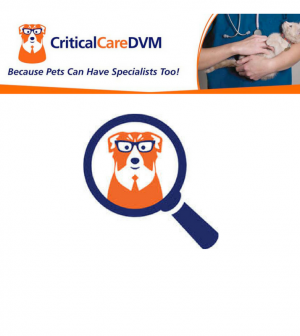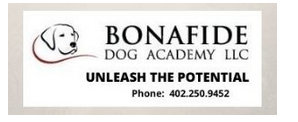- Do you subscribe to Dharma Dog Training’s Newsletter? You should.
- A Unique Campaign from The Humane Society of the United States
- Rabid bats in Omaha- Stay safe, prepared with these tips
- Springtime Activities in Omaha
- Mill Dog Monthly from Bailing Out Benji
- World Spay Day, Legislative Alert in Nebraska
- Attend the Nebraska Rescue Council’s monthly meeting this Saturday
- Five Hard-to-Ignore Reasons to Adopt!
- Paws in Pink to Benefit Breast Cancer Foundation
- VCA, Inc. Acquires MidWest Vet Specialists from Kansas State University
Nauseous Pet? Here’s what they’re telling you

Is your pet going without food? Is he or she vomiting more often than usual? Your pet is likely feeling nauseous and that’s not something to be overlooked.
Luckily, we’ve got some advice from Omaha’s Critical Care and Dr. Christopher Byers. Below, you’ll read about his experience, treatments, and signs you should be paying attention to. Thanks to the doc for letting us share his knowledge! For more advice, tips, and profiles on local vets, visit our Veterinarians page here.
From Dr. Byers:
On an almost daily basis I have the privilege of consulting with families whose dog or cat isn’t eating well (or at all). Sometimes the pet is also vomiting, but often the only concern for the family is the pet’s lack of appetite. When I obtain a complete patient history, families report they have tried multiple types of ready-made foods to entice their fur baby; many have even cooked special homemade meals only to have their pets sniff or lick the food and then turn away from the food bowl. Inevitably pet parents fail to recognize what their pet is telling them with this behavior, so I’ve written this blog post to shed some light on the topic of nausea in dogs and cats.
Clinical signs of nausea
Approaching a food dish to sniff and/or lick only to then walk away from the food dish is, perhaps, the most underappreciated sign of nausea in dogs and cats. Many ill pets will initially eat a food but when that meal makes them feel ill, they subsequently refuse to eat future offerings of that food. When a different delectable is offered, they’ll repeat this behavior.
Other common signs that a dog or cat is possibly nauseated include:
- Reduced or complete loss of appetite
- Excessive drooling
- Lip licking/smacking
- Bruxism (teeth grinding) – see video
- Increased vocalization
- Excessive swallowing
- Pawing at their mouth – see video
- Assuming a hunched body posture
- Lethargy and increased reclusiveness
- Diarrhea
- Shivering
- Vomiting / dry heaving
Causes of nausea
There are many causes of nausea in dogs and cats, and it may be helpful to think of them in two main categories: diseases of the gastrointestinal tract (GIT) and diseases outside of the GIT. Common diseases of the GIT that can cause chronic nausea include:
- Inflammatory bowel disease (IBD)
- Cancer (i.e.: lymphoma, adenocarcinoma)
- Infections diseases (fungi, protozoa, intestinal parasites)
- Food intolerance
- Motility disorders
- Partial obstructions
- Gastrointestinal ulceration
- Severe constipation / obstipation
Diseases outside the GIT that are frequently implicated in chronic intermittent vomiting in cats are:
- Pancreatitis
- Chronic kidney disease
- Hyperthyroidism in cats – see http://criticalcaredvm.com/understanding-feline-hyperthyroidism/)
- Inflammatory liver disease
- Hepatic lipidosis in cats (aka: fatty liver syndrome)
- Central nervous system disease
- Lung disease
- Diaphragmatic hernia
- Heartworm disease
Determining the cause of chronic nausea can be challenging, and often the counsel of a board-certified veterinary internal medicine specialist is invaluable! You can order prescribed medicines for
nausea such as Domperidone from Canada and get them delivered to your home for treating the
nausea of your pet.
Nutritional support is important!
Even if a pet is nauseated and will not eat, nutritional support remains of paramount importance for maximizing a successful outcome, and should be implemented as soon as possible. Prolonged periods (>48 hours) without food can lead to additional complications, for example the development of hepatic lipidosis (fatty liver syndrome) in cats. Force/coax feeding is never recommended because doing so readily promotes the development of food aversion.
Force or coax feeding is not recommended due to the likely development of food aversion
Think about it this way. If you were nauseated, would you want someone shoving food in your mouth? No. Not only would you not like it, you would likely never want to have that food again either! The use of a temporary supplemental feeding tube to provide adequate nutrition for a patient who is not quite ready to eat on his/her own is well tolerated and can truly be lifesaving.
The take-away message
Nausea is a relatively common clinical issue for dogs and cats, but is often under-recognized by pet parents and sometimes even by primary care veterinarians. Be aware of the subtle ways your fur baby may be telling you that s/he is nauseated, and seek medical attention for her/him as soon as possible. Consultation with a board-certified veterinary internal medicine can often be invaluable for helping determine the cause of your pet’s nausea in a cost-effective manner.
To find a board-certified veterinary internal medicine specialist, please visit the American College of Veterinary Internal Medicine.
To find a board-certified veterinary emergency and critical care specialist, please visit the American College of Veterinary Emergency and Critical Care.
Related Posts
Latest News
-
Join Us at Pick A Pooch 2025: A Fun-Filled Weekend for the Whole Family
A Fun-Filled Weekend for Pet Lovers and Families Alike Mark...
- Posted 1 year ago
- 0
-
Beardmore Presenting Sponsor At This Years Pick-A-Pooch event
🐾 We are thrilled to announce that Beardmore Subaru is...
- Posted 1 month ago
- 0
-
How Having A Pet Can Change Your Life
Having a pet can open your heart in ways that...
- Posted 3 months ago
- 0
-
How To Improve The Life Of Your Senior Pet
Do you have an elderly fur baby and want to...
- Posted 3 months ago
- 0
-
Springtime Activities To Enjoy With Your Furry Friends
Are you preparing for warmer weather and want some ideas...
- Posted 4 months ago
- 0
-
Pros And Cons Of Microchipping Your Pets
Have you considered whether your pets should be microchipped and...
- Posted 5 months ago
- 0
-
The Best New Fun Toys For Dogs And Cats
The Best New Fun Toys For Dogs And Cats Did...
- Posted 5 months ago
- 0
-
Heartfelt Ways To Show Your Pet You Love Them
Did you know there are more ways to show your...
- Posted 6 months ago
- 0























You must be logged in to post a comment Login